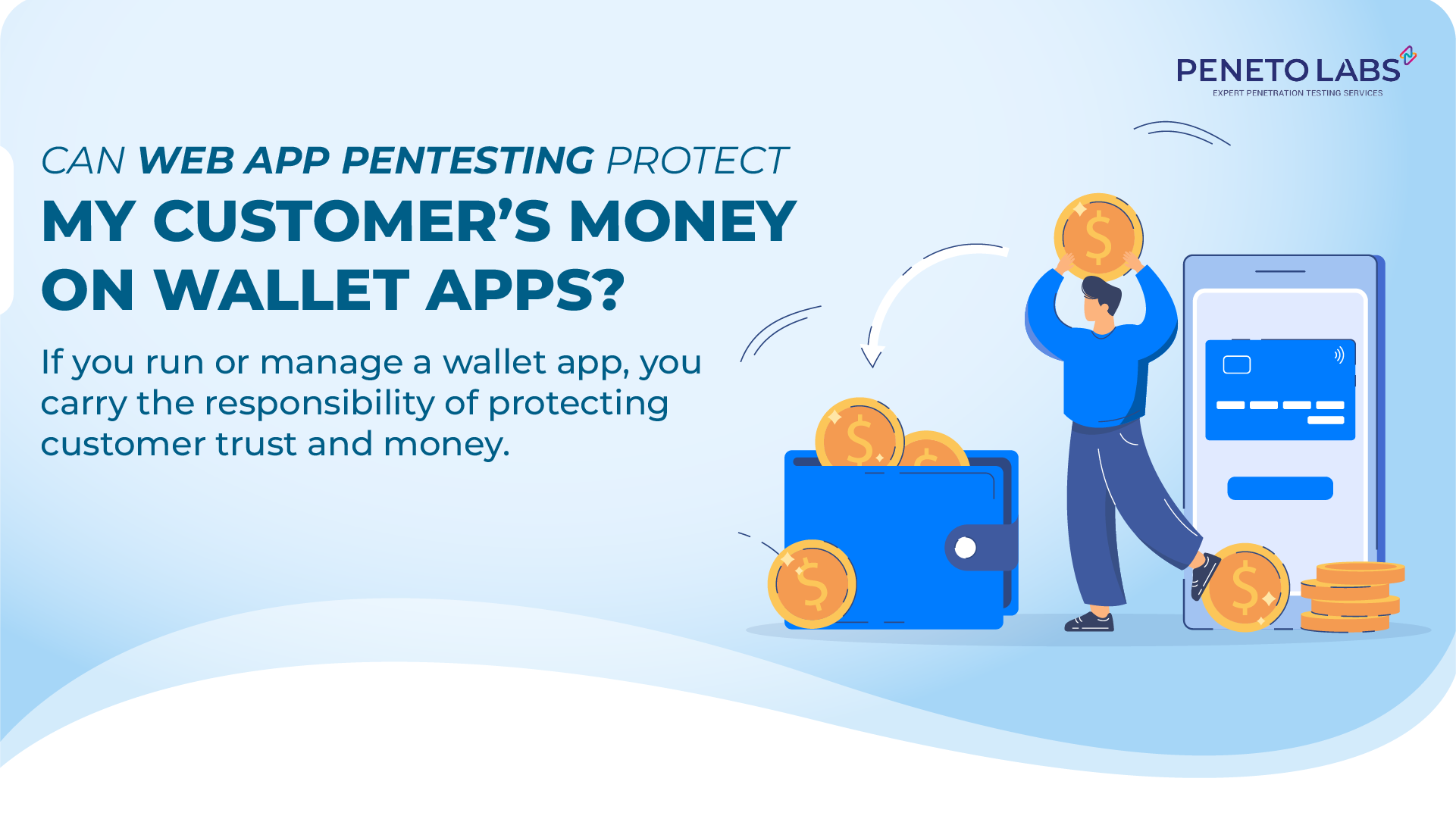Digital wallet apps have changed the way Indians pay, transfer, and store money. From UPI-based transactions to mobile wallets for shopping, food delivery, or ride-hailing, millions of transactions happen daily.
But with convenience comes a growing threat, cybercriminals targeting wallet apps to steal customer data and money. Therefore, wallet apps must undergo regular web application penetration testing, especially after updates, API integrations, or new feature rollouts.
Why Are Wallet Apps Attractive Targets for Hackers?
Wallet apps store sensitive financial data, including:
- Bank account details linked via UPI
- Saved debit/credit cards
- Transaction history
- Personal identifiers like Aadhaar or PAN
For hackers, this is an opportunity. Even a single vulnerability in your application could expose thousands of users to:
- Unauthorized money transfers
- Identity theft
- Fraudulent purchases
- Loss of trust in your brand
In 2023 alone, India reported over 13.9 lakh cybersecurity incidents, many linked to financial services. Wallet apps sit right at the center of this risk. In India, several wallet and payment apps are integrated with web platforms like IRCTC, e-commerce sites, and travel portals. Some popular ones include:
- Paytm Wallet: Widely used on IRCTC, Zomato, and e-commerce sites.
- Mobikwik Wallet: Accepted on IRCTC, Swiggy, and online shopping sites.
- Freecharge Wallet: Integrated with travel booking and utility bill portals.
- Amazon Pay: Used for payments across Amazon and partnered web platforms.
- PhonePe Wallet (UPI + wallet hybrid): Accepted by many online merchants.
- Airtel Money Wallet: Used for mobile recharge, bills, and travel bookings.
- JioMoney Wallet: Linked to Reliance ecosystem and some travel/e-comm sites.
- IRCTC iMudra Wallet: Specifically launched by IRCTC for train bookings and allied services.
These wallets are often integrated with web applications (like IRCTC’s online booking system), which makes web application penetration testing essential to protect financial transactions and customer data.
What Is Web Application Penetration Testing?
Web application penetration testing is a simulated cyberattack carried out by ethical hackers. The goal is to identify vulnerabilities before criminals can exploit them. Unlike automated scans, web application pentesting uses manual methods to uncover logic flaws, chained exploits, and security gaps that scanners often miss.
For wallet apps, this includes:
- Testing login and session handling
- Validating transaction security
- Checking API integrations with banks and payment gateways
- Assessing data encryption methods
- Ensuring secure error handling and patch management
How Web Application Security Testing Protects Wallet Apps?
A strong web application security testing program shields wallet apps by:
- Detecting weak authentication: Ensures MFA and OTP-based verifications can’t be bypassed.
- Securing APIs: Wallet apps rely on bank APIs. Testing makes sure these aren’t open doors for attackers.
- Preventing injection attacks: Stops SQL injections that could expose customer balances and transaction logs.
- Blocking session hijacking: Protects customers from account takeover during login or transactions.
- Ensuring encryption & data safety: Keeps sensitive details unreadable, even if intercepted.
Why Businesses Must Take This Seriously?
If you run or manage a wallet app, you carry the responsibility of protecting customer trust and money. A single breach can:
- Lead to massive financial fraud
- Attract regulatory penalties from RBI and CERT-In
- Permanently damage your brand’s reputation
Customers won’t forgive easily if their hard-earned money is stolen because of a preventable vulnerability.
Why Choose Peneto Labs for Web Application Penetration Testing?
Peneto Labs stands out as one of the best choices for web application penetration testing services in India because of its expertise, precision, and trust factor. As a CERT-In empanelled cybersecurity company, Peneto Labs follows strict regulatory and compliance standards, ensuring that every assessment meets industry requirements.
Unlike vendors who rely only on automated scans, Peneto Labs combines manual and automated techniques to uncover hidden vulnerabilities, including logic flaws and chained exploits that are often missed. With certified professionals holding OSCP, OSCE, GCIH, and GWAPT credentials, the team has extensive experience working with diverse industries such as banking, fintech, healthcare, and SaaS platforms.
Final Thoughts
Yes, web application penetration testing can protect your customer’s money on wallet apps, but only if done regularly and by professionals who understand both financial regulations and evolving cyber threats.
As digital transactions continue to surge in India, businesses that invest in robust web application security testing will not only secure customer money but also win long-term trust in an increasingly competitive market.
Want to talk to an expert who can guide you on web application penetration testing? Contact Peneto Labs today.
